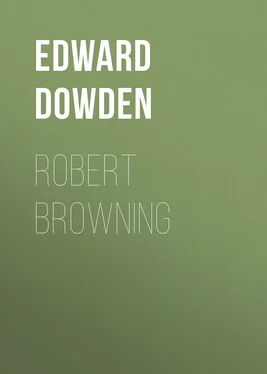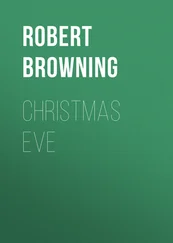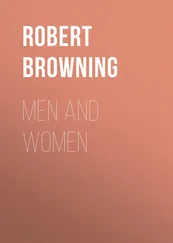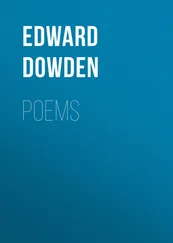Edward Dowden - Robert Browning
Здесь есть возможность читать онлайн «Edward Dowden - Robert Browning» — ознакомительный отрывок электронной книги совершенно бесплатно, а после прочтения отрывка купить полную версию. В некоторых случаях можно слушать аудио, скачать через торрент в формате fb2 и присутствует краткое содержание. Жанр: Биографии и Мемуары, Поэзия, foreign_antique, foreign_prose, foreign_poetry, на английском языке. Описание произведения, (предисловие) а так же отзывы посетителей доступны на портале библиотеки ЛибКат.
- Название:Robert Browning
- Автор:
- Жанр:
- Год:неизвестен
- ISBN:нет данных
- Рейтинг книги:5 / 5. Голосов: 1
-
Избранное:Добавить в избранное
- Отзывы:
-
Ваша оценка:
- 100
- 1
- 2
- 3
- 4
- 5
Robert Browning: краткое содержание, описание и аннотация
Предлагаем к чтению аннотацию, описание, краткое содержание или предисловие (зависит от того, что написал сам автор книги «Robert Browning»). Если вы не нашли необходимую информацию о книге — напишите в комментариях, мы постараемся отыскать её.
Robert Browning — читать онлайн ознакомительный отрывок
Ниже представлен текст книги, разбитый по страницам. Система сохранения места последней прочитанной страницы, позволяет с удобством читать онлайн бесплатно книгу «Robert Browning», без необходимости каждый раз заново искать на чём Вы остановились. Поставьте закладку, и сможете в любой момент перейти на страницу, на которой закончили чтение.
Интервал:
Закладка:
3 3 Letter of R.B. to E.B.B.In 1811 the new-married pair settled in Camberwell, and there in a house in Southampton Street Robert Browning—an only son—was born on May 7, 1812. Two years later (Jan. 7, 1814) his sister, Sarah Anna—an only daughter—known in later years as Sarianna, a form adopted by her father, was born. She survived her brother, dying in Venice on the morning of April 22, 1903.
4 4 Dr Moncure Conway states that Browning told him that the original name of the family was De Buri. According to Mrs Orr, Browning "neither claimed nor disclaimed the more remote genealogical past which had presented itself as a certainty to some older members of his family."
Robert Browning's father and mother were persons who for their own sakes deserve to be remembered. His father, while efficient in his work in the Bank, was a wide and exact reader of literature, classical as well as modern. We are told by Mrs Orr of his practice of soothing his little boy to sleep "by humming to him an ode of Anacreon," and by Dr Moncure Conway that he was versed in mediaeval legend, and seemed to have known Paracelsus, Faustus, and even Talmudic personages with an intimate familiarity. He wrote verses in excellent couplets of the eighteenth century manner, and strung together fantastic rhymes as a mode of aiding his boy in tasks which tried the memory. He was a dexterous draughtsman, and of his amateur handiwork in portraiture and caricature—sometimes produced, as it were, instinctively, with a result that was unforeseen—much remains to prove his keen eye and his skill with the pencil. Besides the curious books which he eagerly collected, he also gathered together many prints—those of Hogarth especially, and in early states. He had a singular interest, such as may also be seen in the author of The Ring and the Book , in investigating and elucidating complex criminal cases. 5 5 Quoted by Mr Sharp in his "Life of Browning," p. 21, n ., from Mrs Fraser Cockran.
He was a lover of athletic sports and never knew ill-health. For the accumulation of riches he had no talent and no desire, but he had a simple wealth of affection which he bestowed generously on his children and his friends. "My father," wrote Browning, "is tender-hearted to a fault.... To all women and children he is chivalrous." "He had," writes Mr W.J. Stillman, who knew Browning's father in Paris in his elder years, "the perpetual juvenility of a blessed child. If to live in the world as if not of it indicates a saintly nature, then Robert Browning the elder was a saint; a serene, untroubled soul, conscious of no moral or theological problem to disturb his serenity, and as gentle as a gentle woman; a man in whom, it seemed to me, no moral conflict could ever have arisen to cloud his frank acceptance of life, as he found it come to him.... His unworldliness had not a flaw." 6 6 "Autobiography of a Journalist," i. 277.
To Dante Rossetti he appeared, as an old man, "lovable beyond description," with that "submissive yet highly cheerful simplicity of character which often … appears in the family of a great man, who uses at last what the others have kept for him." He is, Rossetti continues, "a complete oddity—with a real genius for drawing—but caring for nothing in the least except Dutch boors,—fancy, the father of Browning!—and as innocent as a child." Browning himself declared that he had not one artistic taste in common with his father—"in pictures, he goes 'souls away' to Brauwer, Ostade, Teniers … he would turn from the Sistine Altar-piece to these—in music he desiderates a tune 'that has a story connected with it.'" Yet Browning inherited much from his father, and was ready to acknowledge his gains. In Development , one of the poems of his last volume, he recalls his father's sportive way of teaching him at five years old, with the aid of piled-up chairs and tables—the cat for Helen, and Towzer and Tray as the Atreidai,—the story of the siege of Troy, and, later, his urging the boy to read the tale "properly told" in the translation of Homer by his favourite poet, Pope. He lived almost to the close of his eighty-fifth year, and if he was at times bewildered by his son's poetry, he came nearer to it in intelligent sympathy as he grew older, and he had for long the satisfaction of enjoying his son's fame.
The attachment of Robert Browning to his mother—"the true type of a Scottish gentlewoman," said Carlyle—was deep and intimate. For him she was, in his own phrase, "a divine woman"; her death in 1849 was to Browning almost an overwhelming blow. She was of a nature finely and delicately strung. Her nervous temperament seems to have been transmitted—robust as he was in many ways—to her son. The love of music, which her Scottish-German father possessed in a high degree, leaping over a generation, reappeared in Robert Browning. His capacity for intimate friendships with animals—spider and toad and lizard—was surely an inheritance from his mother. Mr Stillman received from Browning's sister an account of her mother's unusual power over both wild creatures and household pets. "She could lure the butterflies in the garden to her," which reminds us of Browning's whistling for lizards at Asolo. A fierce bull-dog intractable to all others, to her was docile and obedient. In her domestic ways she was gentle yet energetic. Her piety was deep and pure. Her husband had been in his earlier years a member of the Anglican communion; she was brought up in the Scottish kirk. Before her marriage she became a member of the Independent congregation, meeting for worship at York Street, Lock's Fields, Walworth, where now stands the Robert Browning Hall. Her husband attached himself to the same congregation; both were teachers in the Sunday School. Mrs Browning kept, until within a few years of her death, a missionary box for contributions to the London Missionary Society. The conditions of membership implied the acceptance of "those views of doctrinal truth which for the sake of distinction are called Calvinistic." Thus over the poet's childhood and youth a religious influence presided; it was not sacerdotal, nor was it ascetic; the boy was in those early days, as he himself declared, "passionately religious." Their excellent pastor was an entirely "unimaginative preacher of the Georgian era," who held fast by the approved method of "three heads and a conclusion." Browning's indifference to the ministrations of Mr Clayton was not concealed, and on one occasion he received a rebuke in the presence of the congregation. Yet the spirit of religion which surrounded and penetrated him was to remain with him, under all its modifications, to the end. "His face," wrote the Rev. Edward White, "is vividly present to my memory through the sixty years that have intervened. It was the most wonderful face in the whole congregation—pale, somewhat mysterious, and shaded with black, flowing hair, but a face whose expression you remember through a life-time. Scarcely less memorable were the countenances of his father, mother and sister." 7 7 For my quotations and much of the above information I am indebted to Mr F. Herbert Stead, Warden of the Robert Browning Settlement, Walworth. In Robert Browning Hall are preserved the baptismal registers of Robert (June 14th, 1812), and Sarah Anna Browning, with other documents from which I have quoted.
Интервал:
Закладка:
Похожие книги на «Robert Browning»
Представляем Вашему вниманию похожие книги на «Robert Browning» списком для выбора. Мы отобрали схожую по названию и смыслу литературу в надежде предоставить читателям больше вариантов отыскать новые, интересные, ещё непрочитанные произведения.
Обсуждение, отзывы о книге «Robert Browning» и просто собственные мнения читателей. Оставьте ваши комментарии, напишите, что Вы думаете о произведении, его смысле или главных героях. Укажите что конкретно понравилось, а что нет, и почему Вы так считаете.












